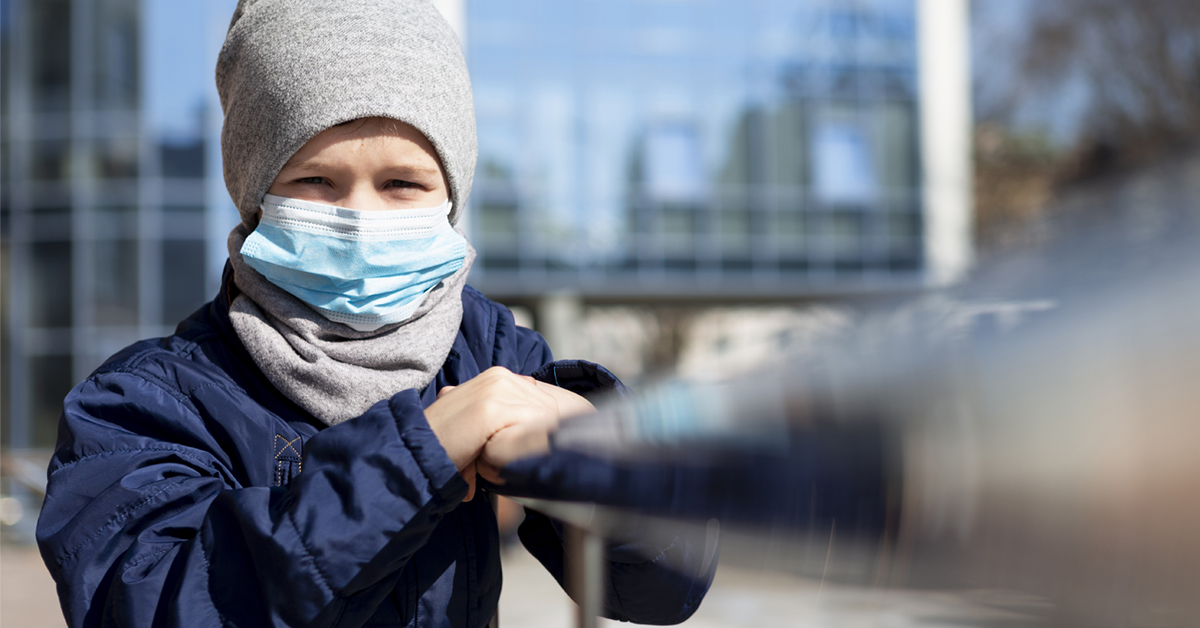The Coronavirus pandemic puts children living in orphanages at even greater risk of neglect, abuse and illness. But rushing to close institutions as a response to the crisis will only add to the dangers they face.
Recent reports of an outbreak of Coronavirus in an orphanage for children with disabilities in Belarus, and an institution for babies in Japan, has drawn attention to the extra risks faced by children confined to orphanages now.
According to the BBC, at least 23 people have been infected with Coronavirus in the Vesnova orphanage in Hlusk, which houses 174 children and young adults with severe disabilities and weakened immune systems. A spokesperson for an Irish charity, working to improve conditions in the institution, said they had taken steps to try to protect the children but faced difficulties as they live in crowded conditions in dormitories.
The Independent recently reported that eight out of 29 babies, kept in an institution in Japan, had tested positive for the virus.
At the same time, international child protection reform experts are warning that huge numbers of vulnerable children are being sent back to their families and communities without proper planning or support, as orphanages rush to close their doors in response to the pandemic.
“Huge numbers of vulnerable children are being sent back to their families and communities without proper planning or support, as orphanages rush to close their doors”
In a letter to the respected medical journal, The Lancet, members of the publication’s Institutional Care Reform Commission Group say they are especially concerned about children with suppressed immune systems who are at increased risk from Coronavirus, and children with disabilities whose families may not have the resources or information they need to care for them.
“In Kenya, we have already seen over 19,200 children taken back to their families and communities”, reports Stephen Ucembe, our Regional Advocacy Manager based in Nairobi.
“It is not certain who these children are, why they were in the orphanages or to who and where they have been released”, he reports.
Many of the children will have been sent to institutions because a lack of adequate support for families to tackle the challenges of poverty or raising children with disabilities has forced parents to make the heartbreaking decision to relinquish their children to institutions. Other children will have been institutionalised because of violence, abuse or neglect. Returning children to their families without addressing these issues may put their lives in danger, Stephen Ucembe warns.
“During this period, it is evident that many children and women are locked at home with their abusers, leaving them with few chances to seek shelter or solace—we do not want this for these children”, he explains.
Hope and Homes for Children is clear that returning children to their families and communities without proper planning, support and monitoring puts children at risk and may also promote the rapid spread of the virus.
“Returning children to their families and communities without proper planning, support and monitoring puts children at risk”
Our belief remains that children belong in families, not orphanages. However, transitioning children from orphanages, and either reuniting them with their families or placing them in quality alternative, family or community-based care must be undertaken with care, proper process and with the child’s best interests at heart.
We recently published our response to Coronavirus, along with a series of blog posts from our frontline staff overcoming the challenges posed by the pandemic.
Many of the orphanages that Hope and Homes for Children is working to close around the world are now short of staff and essential hygiene supplies because of the Coronavirus crisis, putting already vulnerable children at even greater risk of harm.
We’re calling on governments and institution directors to take urgent action to contain the spread of the virus in orphanages, and to prevent the abuse and neglect of children who remain confined to institutions during the pandemic. At the same time, authorities must maintain the provision of funding, food, sanitation and medicine for children living in orphanages.
“[We are] also working with other leading organisations to provide governments and child protection practitioners around the world with the specialist advice they need”
Hope and Homes for Children is also working with other leading organisations to provide governments and child protection practitioners around the world with the specialist advice they need at this dangerous time for children.
Our advocacy team has helped to develop technical guidance* on immediate response measures to the pandemic, based on international standards and practice relating to the care and protection of children.
On the ground, our country teams are doing all they can to keep children safe and monitor the situation by maintaining contact with children and managers and helping to resolve staffing and supply issues wherever possible.
Crucially, our skilled social workers and psychologists are also helping children who remain confined to orphanages to stay in touch remotely with their birth families and potential new families until the work of actively reuniting children with their families or building new families can begin again.
* The technical note and accompanying document were developed by an inter-agency task force of child protection experts including Hope and Homes for Children, coordinated by Better Care Network, The Alliance for Child Protection in Humanitarian Action and UNICEF.
